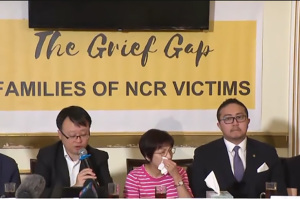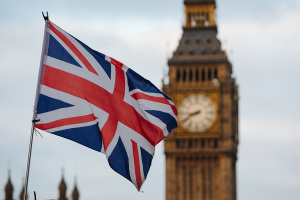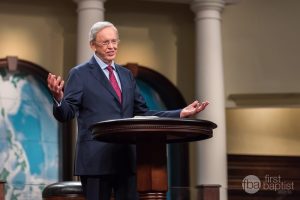Church Coalition 'Very Disappointed' by New U.S. Sanctions Against N. Korea
An organization of over 2,500 Korean American pastors and their congregations expressed disappointment Wednesday over the announcement by U.S. Secretary of State Hillary Clinton regarding new sanctions against North Korea.
Though Sam Kim, executive director of the Korean Church Coalition for North Korea Freedom, said he was "pleased" to hear of the Obama administration's implementation of tougher sanctions against the rogue state, he said he was "very disappointed" because they "do not go nearly far enough and can do more harm than good."
Speaking at a joint news conference in Seoul, Clinton had announced Wednesday a series of measures to increase the United States' ability to prevent North Korea's proliferation of nuclear weapons, to halt their illicit activities that help fund their weapons programs, and to discourage further provocative actions.
"First, we will implement new country-specific sanctions aimed at North Korea's sale and procurement of arms and related materiel, and the procurement of luxury goods and other illicit activities," Clinton said.
"These new measures will strengthen our enforcement of U.N. Security Council resolutions 1718 and 1874. And they also provide new authorities to target illicit North Korean activities," she added.
In addition to the new measures, Clinton said the United States plans to expand and strengthen its work under existing authorities to identify pressure and put out of business North Korean entities involved in proliferation and other illicit practices overseas.
The intensified effort includes, among others, new efforts with key governments to stop the DPRK trading companies engaged in illicit activities from operating in countries; expanded cooperation globally to prevent the travel of individuals designated under Security Council resolutions, as well as other key North Korean proliferators; and greater emphasis on North Korea's repeated abuse of its diplomatic privileges, in order to engage in activities banned by the Security Council. The United States will also press countries not to purchase banned items from North Korea, or to sell North Korea proliferation-related goods.
"Let me stress that these measures are not directed at the people of North Korea, who have suffered too long, due to the misguided and maligned priorities of their government. They are directed at the destabilizing, illicit, and provocative policies pursued by that government," Clinton said Wednesday.
"From the beginning of the Obama Administration, we have made clear that there is a path open to the DPRK to achieve the security and international respect it seeks," she added. "North Korea can halt its provocative behavior, its threats and belligerence towards its neighbors, take irreversible steps to fulfill its denuclearization commitments, and comply with international law."
And if North Korea chooses that path, Clinton said sanctions will be lifted, energy and other economic assistance will be provided, its relations with the United States will be normalized, and the current armistice on the Peninsula will be replaced by a permanent peace agreement.
"But as long as the North Korean leadership takes a different choice, continuing defiance, provocation, and belligerence, it will continue to suffer the consequences," the secretary of state added.
According to KCC, however, the new sanctions against North Korea are "ineffective" and "will work only to legitimize the brutal North Korean government and will eventually lead to the death of millions more of its own people."
"North Korea continues to become increasingly bolder in its sponsorship of terrorist activities, and it is puzzling how the U.S. State Department continues to justify keeping North Korea off the State Department's 'State Sponsors of Terrorism' list," the coalition added.
KCC's president, the Rev. Peter I. Sohn, further criticized the lack of comments regarding the human rights situation in North Korea.
"For the first time in history, we have two cabinet members present at the DMZ, and there was not one mention of human rights," Sohn noted, referring to the visit by Clinton and Defense Secretary Robert Gates to the heavily fortified border dividing the two Koreas.
"Not one word," he stated.
Notably, however, Clinton did acknowledge how "people of the North have suffered for so many years" and suggested that they lack "leaders who care about the well-being of the people" – something she said their counterparts, South Korea, has.
Clinton and Gates' one-day visit came on the heels of the 60-year anniversary of war on the Korean peninsula, which broke out on June 25, 1950, and concluded with the signing of an armistice on July 27, 1953. The conflict claimed over three million lives and divided the Korean Peninsula along ideological lines.





























